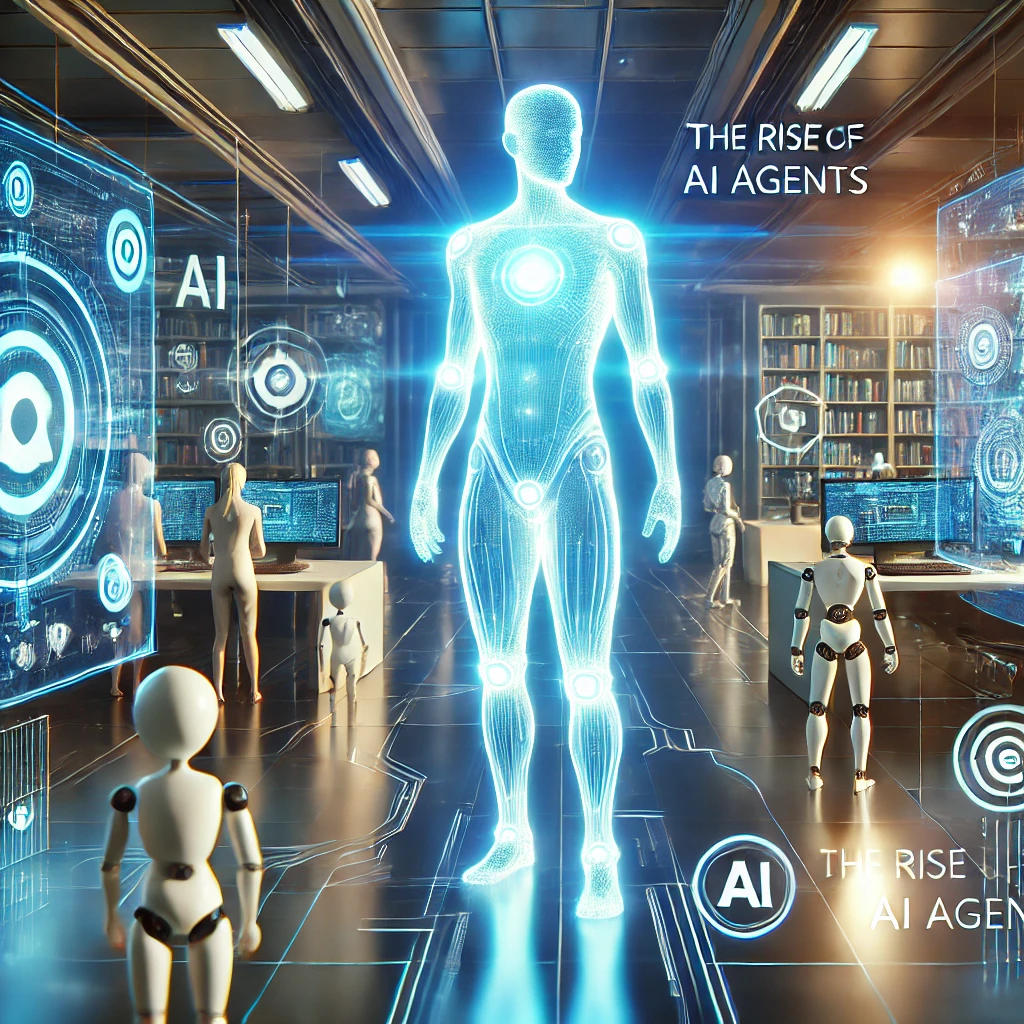The 3 most impactful AI news in the last 24 hours are:
1. **The Rise of AI Agents:**
Tech giants like OpenAI, Google, and Microsoft are betting big on AI agents – autonomous programs capable of performing tasks, making decisions, and interacting with environments with minimal human intervention. Think of them as highly evolved digital butlers.
2. **AI’s Domination in Cybersecurity:**
A whopping 89% of security operations centers are planning to replace traditional threat detection systems with AI-powered tools in the next year. This signifies a massive shift in the cybersecurity landscape, with AI poised to become the new sheriff in town.
3. **UK’s AI Prowess Shines with Nobel Prize Wins:**
The UK’s recent double-win in the Nobel Prizes for AI, awarded to pioneers like Geoffrey Hinton and Demis Hassabis, underscores the nation’s longstanding leadership in the field. This is a big pat on the back for UK’s AI community and a testament to its commitment to research and development.
**However, the news that has the biggest implications for you, dear reader, is the imminent arrival of AI agents.** So, let’s dive deeper into this potentially life-altering development.

AI Agents: Your Digital Butler, or the Beginning of the Robot Apocalypse?
Imagine a world where booking a flight, scheduling a meeting, or even buying groceries is as simple as whispering a command to your AI agent. Sounds like a dream, right? Well, that’s the promise of AI agents. These autonomous programs are touted as the next evolution of automation, poised to revolutionize how we interact with technology.
But are they really that different from the bots and assistants we already have?
AI companies argue that they are. Agents, they claim, can learn from feedback, adapt to unexpected situations, and interact seamlessly with multiple systems, including humans and other AI tools. In other words, they are smarter, more versatile, and more independent than their predecessors.
The hype surrounding AI agents is real.
Tech giants are pouring billions into their development, and startups are popping up like mushrooms after a rain shower. But before you start dreaming of a life of leisure while your AI agent handles everything, it’s important to consider the potential downsides.
First, these digital butlers come with a hefty price tag.
The computational power required to run them is immense, making them expensive to develop and deploy.
Second, accuracy is still an issue.
AI agents are only as good as the data they are trained on, and there’s always a risk of them making mistakes, especially in complex or high-stakes situations. Imagine your AI agent accidentally booking you a flight to Timbuktu instead of Tokyo. Not so funny, right?
Third, and perhaps most importantly, there are serious ethical concerns.
Who is responsible if an AI agent makes a mistake that causes harm? How do we prevent them from being misused for malicious purposes, like spamming or spreading misinformation? These are questions that need to be answered before we unleash legions of AI agents into the world.
Despite these challenges, AI companies are optimistic about the future of agents. They predict widespread adoption by 2025, envisioning a world where humans can focus on more creative and meaningful tasks while AI handles the mundane.
So, what should you do?
For now, it’s probably best to approach AI agents with a healthy dose of skepticism. Keep an eye on the developments, but don’t rush to hand over your life to a digital butler just yet. The future of AI agents is still uncertain, and it’s important to be aware of the potential risks as well as the rewards.

AI is Taking Over Cybersecurity: Hackers Beware!
While AI agents are still in their infancy, AI is already making a huge impact in the field of cybersecurity. A recent survey revealed that a staggering 89% of security operations centers are planning to replace their old-school threat detection systems with AI-powered tools in the next year.
Why the sudden shift?
Well, traditional cybersecurity systems are struggling to keep up with the ever-evolving threat landscape. Hackers are becoming more sophisticated, and the sheer volume of data that needs to be analyzed is overwhelming.
AI, on the other hand, can analyze massive amounts of data in real-time, identify patterns that humans might miss, and adapt to new threats quickly. This makes it a powerful weapon in the fight against cybercrime.
But the transition to AI-powered cybersecurity is not without its challenges. AI systems need to be trained on vast amounts of data, and there’s always a risk of them making mistakes, especially in the early stages of deployment.
Despite these challenges, the move towards AI-powered cybersecurity seems inevitable. The benefits are simply too great to ignore. As AI systems become more sophisticated and reliable, they are likely to play an increasingly important role in protecting our digital lives.

UK’s AI Triumph: A Nobel Prize Double Whammy
The UK’s AI community has a lot to celebrate this week. Two of its leading figures, Geoffrey Hinton and Demis Hassabis, have been awarded Nobel Prizes for their groundbreaking work in the field.
Hinton, often referred to as the “godfather of AI,” is recognized for his pioneering work on neural networks, which are the foundation of many modern AI systems. Hassabis, the co-founder of DeepMind, is honored for his work on AlphaFold, an AI system that can predict the 3D structure of proteins with remarkable accuracy.
These awards are a testament to the UK’s longstanding leadership in AI research. The country has a strong tradition of innovation in this field, dating back to the work of Alan Turing.
But the UK is facing increasing competition from tech giants like Google and China, which are investing heavily in AI research and development. To maintain its position as a global leader, the UK needs to continue to invest in research, attract and retain top talent, and foster collaborations between academia and industry.
The Nobel Prize wins are a reminder of the UK’s potential in AI. With continued investment and support, the country can continue to make significant contributions to this transformative field.
It’s an exciting time to be alive, but it’s also important to be aware of the potential risks and challenges associated with AI. By staying informed and engaging in thoughtful discussions, we can help ensure that AI is used for good and that its benefits are shared by all.